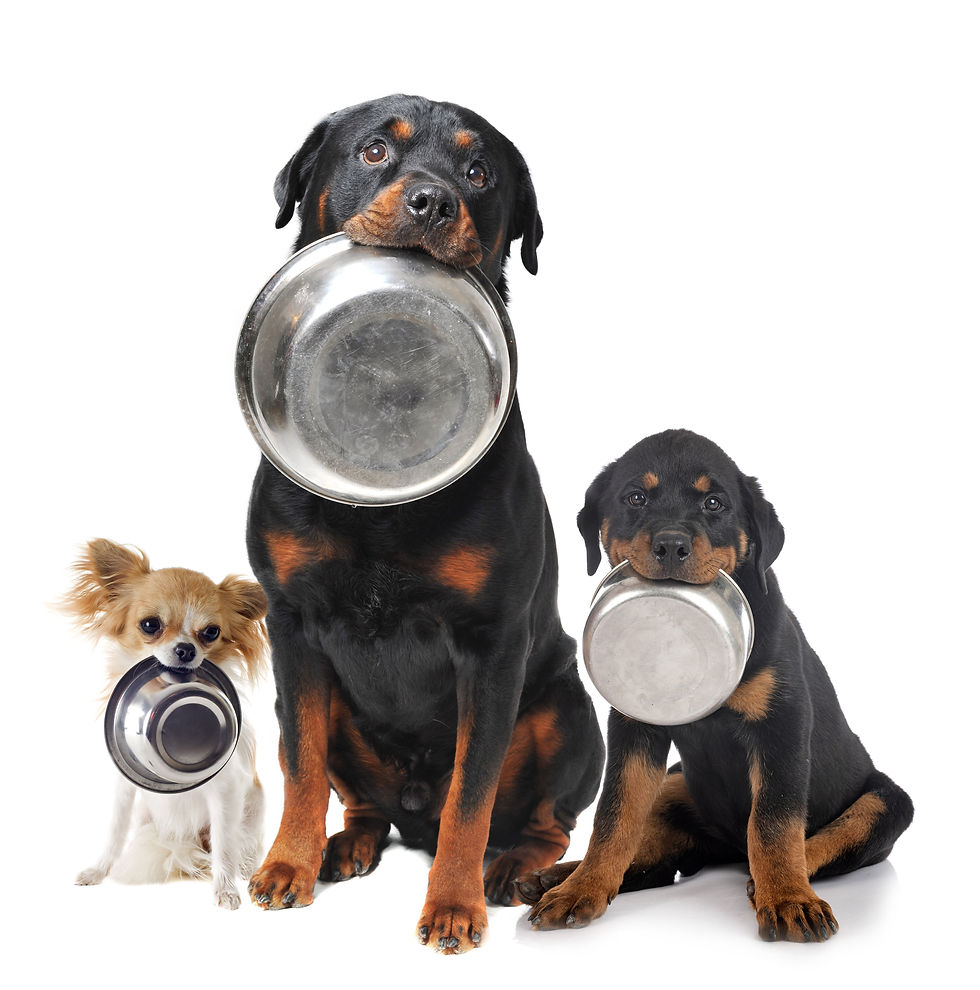Growing Up Healthy: The Importance of Proper Nutrition for Puppies
- Deepak Kumar
- Feb 7, 2024
- 3 min read

1. Introduction
Growing up with a puppy brings you a lot of joy, isn't it? Despite love and companionship, the health and wellbeing of your puppy rely on you. Developing a pet nutrition plan that satisfies your dog's energy needs will help them live a long and healthy life. Read on to learn more about the nutritional diet for puppies during this critical time of their development.

2. Puppy's nutritional needs
It's crucial to understand the dietary needs of a puppy when raising it from birth. You lay the foundations for their wellness and development from the first month of your puppy's life. Hence feeding them with foods that are rich in essential nutrients has become mandatory.

Carbohydrates:
Puppies need carbohydrates for their energetic living. Carbohydrates, a good source of fiber, help in promoting the digestive health of puppies. Cereals, legumes, and other plant foods are the main sources of carbs in commercial dog foods. Glucose and fructose can be absorbed immediately and do not require enzyme digestion for puppies.
Proteins:
Puppy's speedy growth and development require more nutritional protein and vital amino acids than adult dogs. Puppies are generally advised to consume a protein range of 22-32% for healthy living. As they grow, the intake of protein levels will be reduced to a considerable quantity.
Fats:
Fats are an essential source of nutrients for highly energetic puppies. Puppy food normally has higher fat content than adult dog food. On the other hand, consuming higher levels of fat-soluble foods may lead to obesity and orthopedic diseases. Hence it’s safe for puppies to take 10-25% of fat content food daily.
Calcium:
Calcium-rich foods are a must for puppies for their strong bones and teeth. Giant and large breeds generally require a different proportion of calcium intake than small and medium-sized breeds. So, calcium intake must range from 0.7-1.7% for puppies' food.
3. Foods for puppies at different ages
Like humans, puppies upgrade their foods at different stages of life. There comes the nutritional plan for puppies from 3 weeks till they become adult dogs.
3 weeks to 12 weeks:
During this period, the immune system of a puppy will be sensitive making it vulnerable to infections. They require vitamin E to enhance natural defenses in their bodies. They tend to attain 5-10% of their body weight every day for the first few weeks. Another important ingredient to look for is DHA, which aids with their brain development.
12 weeks to adulthood:
Your pup will need protein to grow strong muscles at this stage. An appropriate Calcium: Phosphorus ratio to support their bones and teeth, a blend of zinc and omega fatty acids for healthy skin, and Vitamin E to promote immunity is essential during this time.
Adulthood:
A healthy pup requires protein, antioxidants, calcium, optimal phosphorus ratios, omega fatty acids, and zinc in the right quantities. At this age, digestive health generally depends on dietary fiber as well.
4. When can a puppy consume solid food?
Most pups are weaned fully by the 6th week and slowly switch over to solid foods. Adapting a new change in food method can cause some unexpected digestive issues and bodily responses. This is quite temporary and it's a sign of a pup getting used to the new nutritional diet. There are some calculated measures to ease the effect and giving nutritional supplements will keep their digestive system on track.
5. Does home food work best for puppies?
A growing puppy's diet must have the right balance of protein, fat, and calories. Hence, incorporating them into the home-cooked food is necessary. Make sure your puppy gets every nutrient it needs in its food as you start creating a home-prepared meal for it to be healthy and thrive. Such foods include rice, pasta, potatoes, carrot, green beans, peas, etc.
6. How often your pup must be fed?
Puppies generally eat several times more than adult dogs. Feeding ½ cups thrice a day is much healthier than giving ¾ cups two times a day. Smaller meals are easier for the dog to digest, and also frequent meals give constant energy levels for the puppies. You can start feeding twice a day at around six months for convenience. But if your dog is a mixed large breed, it is recommended to keep a feeding schedule three to four times a day to avoid gastrointestinal dilatation-volvulus.
7. Harmful foods to avoid
Remember that a puppy's stomach is as delicate as ours. It is not recommended to feed your puppy with popular human foods like garlic, onions, chocolates, and raisins as these can be extremely harmful to their digestive systems.
8. Conclusion

A well-balanced diet is vital for pups' healthy day-to-day activities. Hence, maintaining proper nutrition plays a predominant role in puppies' lives.



Comments